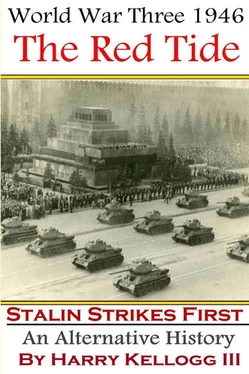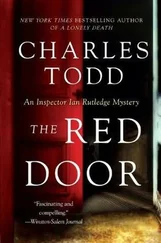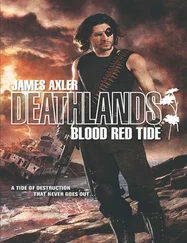“Our previous solutions including the use of massive tactical airpower and artillery barrages, are not available at this time due to lack of air superiority, and counterbattery fire on a massive scale, by the Soviet guns.”
“Their other advantage, at the moment, is in their sheer overwhelming numbers. We are well-matched in the air, and outmanned by a ratio of five-to-one on the ground. Their standard conventional frontline fighter planes are equal to ours in both performance and numbers on a tactical basis…”
A voice from the audience asks a question.
“What was that, Congressman…?”
“What I meant by ‘tactical’, are the actions that are specific to the local battlefield. Tactical weapons are things like pistols, rifles, machine guns, bazookas, ground attack aircraft, tanks. Things that are used on a small-scale are close-in to the battlefield, and short timelines. In the case of the fighters, to make it clear, I’ll say within sight of the ground. Their fighters are as good as ours, at lower to medium altitudes. We do, nonetheless, have an advantage higher up, but I’ll talk about that later.”
“Does that answer your question for now Congressman? Yes sir, my pleasure.”
“We too, have advantages, but we cannot bring them to bear at the moment. We’ll have to bide our time, and use them as soon as we can be ready to. Our naval power is unrivaled, and they will never be able to match us in sheer numbers and quality of ships. Unfortunately, the Soviets have all the resources they need, contained on their own landmass. They have no need for shipping, and thus, no need for a true blue-water navy.”
“Our navy gives us the same advantages that the British Empire had over its rivals: mobility and the flexibility to hit anywhere, at any time, on any coast. We can hit and run, or hit and stay, at our leisure, so long as we have control, or even parity, in the airspace over the battlefield.”
“Our second advantage is ground-force mobility. Our ground forces are faster and more mobile in every category. If the situation calls for maneuver, we have the advantage. As I said before our navy gives us the capability to hit them anywhere, at any time, with a literal-strike capability within 400 miles of a coastline, along with the logistics to support a full-scale invasion, such as the Overlord/D-Day operation.”
“Our third advantage is our strategic bomber force. We pounded the Nazis into surrender, and we intend to do the same to the Soviets. We just have to get ourselves into a position to accomplish this objective. I’m sure the Soviets have learned their lessons from the last World War, and are likely preparing countermeasures as we speak. Our B-29’s, along with their escort fighters, can fly higher than their current frontline fighters can reach and have a 1,600-mile round-trip range with escorts. If we fly without fighter escorts the range increases by 400 miles. Until they produce an effective counter to our bomber force, they are at a great disadvantage. As I said earlier, I am sure they are aware of the problem.”
“They are currently in possession of three B-29’s, and have had them since 1944…”
A shout of surprise erupts from the left side of the audience.
“Yes, Admiral… they acquired them in the Far East Theater, when our bombers were forced to land in Soviet territory during bombing raids on the Japanese homeland. Up till now they have come up with many excuses to delay their return. I’m sure the point is now moot.”
“If I may continue sir… thank you.”
“The point is that they have been studying the Superfortress for almost a year and a half, and likely now know its capabilities and vulnerabilities.”
“They have very limited strategic airpower assets. We have reason to believe that they have gathered a fair number of former German scientists, blueprints for advanced designs and prototypes. They seem to be particularly interested in guided rockets.”
Another question is asked.
“Yes Senator… I said guided rockets. The Germans were very advanced, and tested numerous models. We can brief you in private later, Senator.”
“We have been studying just this situation for the last four months, and were about to publish our first draft. I would suggest that it is now our final draft.”
“Major Wilkes will now take over the briefing.”
“Good morning gentlemen. As General Knock said I am Major Wilkes.”
The series of plans we will present today were developed to counter a Soviet invasion of Western Europe and the Middle East… Yes, General?”
“…Yes sir, we expect the Soviets to attack in the Middle East as well, and soon for various reasons which will become apparent.”
“Yes sir; thank you sir… May I continue…? Thank you sir.”
“The best, and most complete, plan we have is a draft of Plan Griddle.”
“The Soviets hold all the cards right now and we project that they will overrun western Europe, with the notable exception of Great Britain, within sixty days, given our force levels and logistics capabilities…”
The room explodes with heated comments and questions…
“IF WE CAN PLEASE HAVE ORDER IN THE ROOM! Please, can we all calm down, so I can expand on our reasoning? Please sit down.”
“Thank you. I know you have lots of questions. More than we have answers for, I’m sure. Gentlemen, please calm down. This is the best and only plan we have currently and I strongly suggest that we hold off all the questions until after the briefing.”
“As I was saying, we foresee that the Red Army will be able to overrun all of Germany, France and the Low Countries within sixty days given our diminished military capabilities. Our British friends are in agreement, and are preparing their air defenses for another ‘Battle of Britain’. The situation is very similar to 1940 in the short run. We will be able to slow them down, as will their own logistical challenges. Our plan is to add to those challenges, but realistically, we will not be able to stop them until we gain our strength back and form a coherent defensive line.”
“For now that is all we can tell you. Everything else would be conjecture considering the sparse nature of the intelligence that we currently possess. We have to take inventory of our losses, and assess how fast we can reconstitute the greatest fighting force the world has ever seen… that is currently getting its hat handed to it.”
“Thank you gentlemen; that is all for now.”
The A-Bomb
Joint Chiefs of Staff Meeting
The Pentagon
Outside Washington, DC
May 3rd, 1946
07:30
“Be seated gentlemen.”
“You few have been selected to hear the unvarnished truth about our situation, concerning our current atomic capabilities. You will be found guilty of treason, if any of this information leaves this room. Am I clear?”
All in the room nod their heads or voice their answer.
“Let’s begin then…”
“We currently have the parts for four atomic bombs ready for assembly. Under normal circumstances they take two days to assemble, and they have to be used within 48 hours of assembly, or they have to be disassembled, to replace some components before it is reassembled again. The Mark III atomic bomb has a battery and this battery has only 48 hours of optimal power needed for detonation.” [11] Harry R. Borowski. A Hallow Threat: Strategic Air Power and Containment before the Korean War.
“The bombs are massive and weigh over 10,000 pounds each. Only the specially-modified B-29 Silverplate bombers can deliver them. The B-29’s have a range of 3,200 miles. They can be escorted up to 2,000 miles. We currently have twelve of them.”
“The atomic bombs are so large that it can only be loaded on the B-29 by positioning the bomber over a specially-designed pit, using lifting equipment to hoist it up into the bomb bay. Currently we have two of these pits. One is on Okinawa, and the other one is in England.”
Читать дальше












